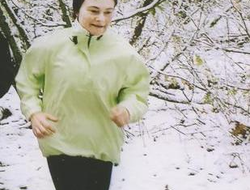Menopause: Diet and exercise therapy to ease the transition
Published: April 08, 2022
Menopause, the permanent cessation of menstruation, is for most women a natural aging process.
However, in recent years menopause has become medicalised and is often treated like a disease.
During this transition period, which varies in length, hormonal changes which occur can result in a range of physical effects.
Menopause usually occurs between the ages of 40 and 58 with an average age of 52 years for women in North America,
Earlier onsest of menopause is associated with:
- lower body weight
- never pregnant
- never used oral contraceptives
- smoking
- length of menstruation
- socioeconomic status, and race and ethnicity.
Later onset of menopause is associated with higher body weight.
Menopause may also be induced by chemotherapy, radiation, and surgery such as a hysterectomy.
Transition effects are usually called "symptoms" (a word which is usually associated with disease) and include:
- Hot flashes
- Night sweats
- Vaginal dryness and painful intercourse
- Sleep disturbances
- Mood and cognition changes
- Somatic problems
- Urinary incontinence
- Bleeding disturbances
- Sexual dysfunction
None of these effects are pleasant and while some women experience few or no effects, many women experience significant effects which seriously affect their quality of life.
Many of the effects of menopause are associated with diminishing levels of reproductive hormones, estrogen and progesterone, as a woman's reproductive system gradually shuts down.
From a medicalised perspective the most effective way to treat the "symptoms" of menopause is to restore levels of reproductive hormones.
Preferred methods of hormone replacement therapy (HRT) use either estrogen by itself, or with progestins.
HRT has been shown to be very effective at reducing the "symptoms" of menopause.
Therapies were initially thought to decrease the risk of heart disease and osteoporosis: both "side effects" of menopause.
However, research now indicates that HRT may not be suitable for all women...link to the full article to learn more.
References
1.
Whitney, E. & Rady Rolfes, S. (2005). Understanding Nutrition. Belmont, CA: Thomson Wadsworth
2.
Daley et al. (2009): Exercise to reduce vasomotor and other menopausal symptoms: A review. RefDoc.Fr, vol. 63, no3, pp. 176-180
3.
Management of Menopause-Related Symptoms
4.
Carroll, D.G. (2006):American Family Physician Volume 73, Number 3
5.
Newton, K.M et al. (2006): Ann Intern Med. 145:869-879.

